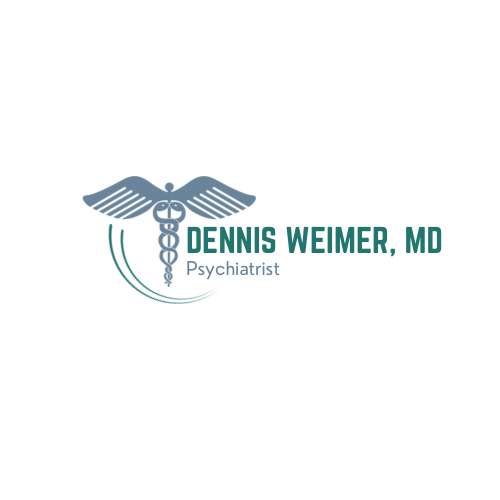
Daisy (not a mountain lion)
Toolbox
A friend of mine relates this hilarious story about a bloke he knows who is a self-professed expert in Jiu-jitsu. This chap is convinced he could take a mountain lion with his bare hands. Really? Talk about a delusion. Contact the Vegas oddsmakers and the insurance underwriters and sign me up for the pay-per-view. It should be scintillating. Methinks your carotid artery and proficient proprioception are no match for the Big Cat.
I have a collection of edged and bladed weapons and limited training in their use. I can slice a cucumber without (so far) amputating my thumb. I have a blue belt in Kenpo Karate, but admittedly my skills are both rudimentary and rusty. If I encounter a grizzly while hiking and the only tools I have at my disposal are my Bowie knife, Kenpo skills, and use of Aristotelian logic, they will do nothing to dissuade the bear from eating me. I'm toast.
The old adage "to a man with a hammer, every problem is a nail" applies. The biological revolution in psychiatry over the past 40 years has undoubtedly saved countless lives with the development and refinement of numerous psychotropic medications. We know more about neurotransmitters and pharmacodynamic and pharmacokinetic interactions than ever before. Medications have provided tremendous relief for patients suffering from Depression, OCD, Anxiety disorders, Bipolar Disorder, and Schizophrenia. I've written thousands of prescriptions over the years and make no apologies for doing so. I routinely refer patients for Transcranial Magnetic Stimulation and Electroconvulsive Therapy when clinically indicated.
My dismay is that much of Medicine in general has been reduced to “symptom, pill.” I experience distress, so there must be a pill to cure what ails me. My problem with this paradigm is that it has morphed into an almost sole reliance on an external locus of control. It leads towards passivity and away from accountability. It detracts from an individual's own agency in life. There's no pill that's FDA approved for the treatment of LIFE. How we've devolved from Descartes, "I think, therefore I am" to "I take pill X, therefore I function."
I've used the term "post-apocalyptic healthcare" for many years to describe the current landscape of medical treatment, to the consternation of many, mainly administrators, bureaucrats, and politicians. They find it pejorative, arrogant, and hyperbolic. Today, many mental health practitioners with prescriptive authority have little or no training in psychotherapy, through no fault of their own. They've simply been trained in pharmacology with courses lasting a few months. That's the one tool they have in their toolbox. You don't know what you don't know. They lack the requisite medical training to look for organic etiologies of psychological symptoms. They struggle treating patients with trauma histories, addictions, personality disorders (yes, personality disorders exist, despite the stigma attached to them that leads to a political movement to "eradicate" the diagnoses from our lexicon, and many of them are treatable, but this is a topic for another time). Patient presents with distress, practitioner attempts to select a pill which alleviates said distress, prescribe said pill or “cocktail,” reevaluate in 4 weeks in a 15-minute time slot. "How are you feeling? Are you having side effects from the medication? Are you sleeping? Suicidal? Hearing voices? Not better? Worse, eh? Ok, let's try this pill instead. We're out of time. See me back in 4 weeks." Lather, rinse, repeat. It's rather difficult to build a therapeutic alliance in that drive-thru model.
I remember attending an Addiction Medicine seminar where the speaker talked of the "Stimulus-Response" theory of conditioning, and brilliantly opined we should change it to "Stimulus-ORGANISM-Response." Every organism can respond differently to a stimulus based upon their experiences and tools. If one has undergone trauma, the response can be quite varied. The healing from psychological trauma is often much more protracted and unpredictable than the recovery from a tibia fracture. It's not going to be fixed in 15 minutes with a pill. Therapy, therapy, therapy!
Sometime within the first few visits, a patient may undergo pharmacogenomic testing, being told "there's a DNA test that will show us what medications will work for you." "Oh, the delight! I simply get a swab of my cheek and they check my DNA and they find the right pill to fix me? Alleluia!" Well, not to deflate one's hopes, but it doesn't quite work that way. There's utility in pharmacogenomic testing, and I often order it in my practice, but I always explain to patients the limitations. Pharmacogenomic testing shows us how a patient metabolizes certain medications based upon their genetic makeup. It helps identify what psychotropic medications a patient may better tolerate and can assist us in whittling down the potential pool of drugs to prescribe. It doesn't tell us if a patient is going to have a clinical response to the medication. If I have a headache and take an aspirin, it may fix my headache, unless I have an allergy to aspirin. It may also increase my bleeding time and cause GI distress. All pharmacologic treatment is trial and error. ALL treatment is trial and error.
Treatment must start with an understanding that the patient-physician relationship is sacrosanct. A wise psychiatrist is always reading the room, attempting to discern if there is alliance or resistance. That isn't binary, it exists on a spectrum, and can shift on a dime several times throughout the session. If the patient doesn't like or trust the physician, treatment is already behind the 8-ball. A thorough diagnostic assessment is necessary where biological, psychological, and social factors are considered. If the patient has been misdiagnosed, it doesn't matter what "pill" is prescribed, it will likely prove ineffective. If a practitioner lacks sufficient training and/or experience, nuances get overlooked, diagnostic errors increase, treatments get pigeonholed, and patients get marginalized.
Treatment exists on a continuum. It should always be individualized. The more tools we use, the better the chances of success. Start with a healthy diet, exercise, boundaries, healthy relationships, and, here it frustratingly is again, therapy, therapy, therapy! Don't imbibe like a fish. Meditation, yoga, reading, engaging spiritually, whatever helps provide you tranquility. Stop watching the vapid cackling heads on television and listen to some music that speaks to you. Walk outside and look at the trees and listen for the raptors.
Medications help reduce symptoms, but they shouldn't be the backbone of treatment. Therapy is a helluva lot harder, and it's downright raw and painful at times, but it promotes growth and development and allows one to consolidate gains so that healthy change is sustainable. It provides one with adaptive coping mechanisms and tools to develop and nurture an internal locus of control. Prune the tree and get rid of the toxic branches in your life, including those from within. Your core will become stronger, and you'll better your odds when battling the predators.
